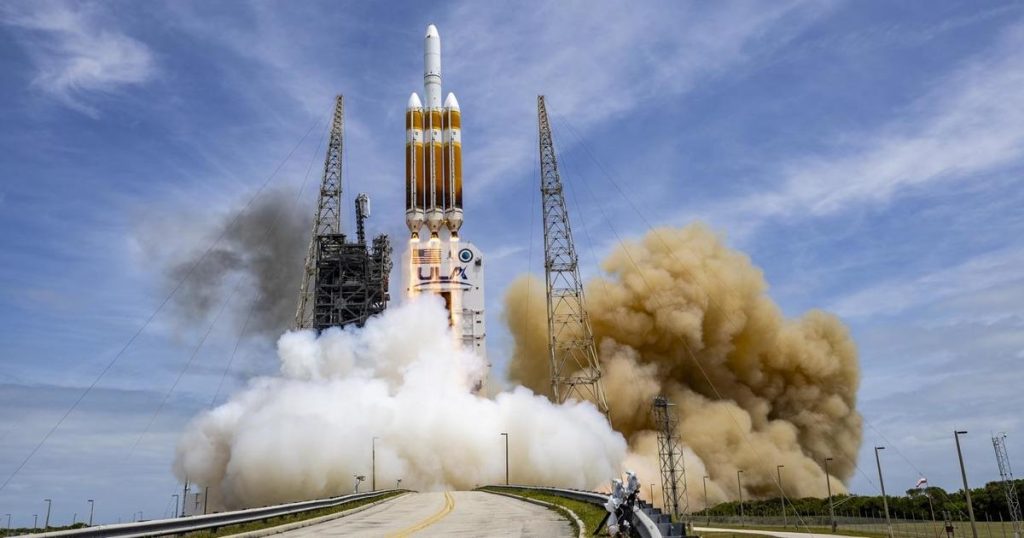United Launch Alliance successfully launched the final triple-core Delta 4 Heavy rocket, marking the end of an era in U.S. rocketry. The rocket carried a classified spy satellite provided by the National Reconnaissance Office. The launch was delayed by 12 days due to the replacement of a pump in a system supplying nitrogen gas to multiple launch pads, but it proceeded smoothly on its final mission. The satellite reached its planned orbit about six hours after liftoff, with details about the NROL-70 payload being undisclosed for security reasons.
The payload of the rocket is believed to be an advanced signals intelligence satellite intended for a geosynchronous orbit above the equator. Such satellites are equipped with mesh antennas that can monitor radio signals, particularly military communications, over large areas. The NRO Director highlighted the importance of the mission for national security and the delivery of valuable information to policymakers, the military, and other organizations. The launch coverage was concluded with confirmation of second stage engine ignition and payload fairing separation before the rest of the ascent was carried out in secrecy.
The emotional milestone of the final Delta 4 Heavy launch was felt by the managers, engineers, and technicians involved in the program. Col. Eric Zarybnisky expressed mixed emotions, having been part of the team that launched the first Delta 4 rocket for the NRO. Tory Bruno, president and CEO of United Launch Alliance, referred to the event as bittersweet, as the company transitions to the next-generation Vulcan rockets, retiring the Delta and Atlas families. The Delta rockets have played a significant role in the nation’s space missions, with the Delta 2 launching the first GPS satellites and various planetary probes into deep space.
While the Delta family has a storied legacy spanning 60 years, the decision to retire the expensive Delta 4 and Heavy rockets was based on the need for more cost-effective launch solutions in an era of smaller and more numerous satellites. The transition to the Vulcan rockets represents a move towards higher-performance and less expensive launch vehicles. The closure of the Delta line marks the end of a significant chapter in U.S. rocketry history, despite the excitement surrounding the future missions that will be conducted with the Vulcan rockets. The Delta rockets have made substantial contributions to national security and space exploration, leaving behind a lasting legacy in the field.


